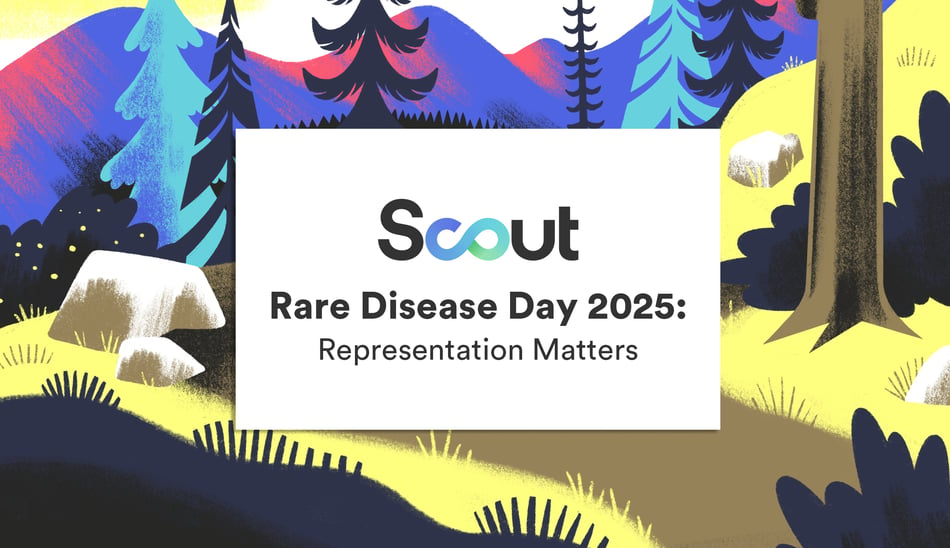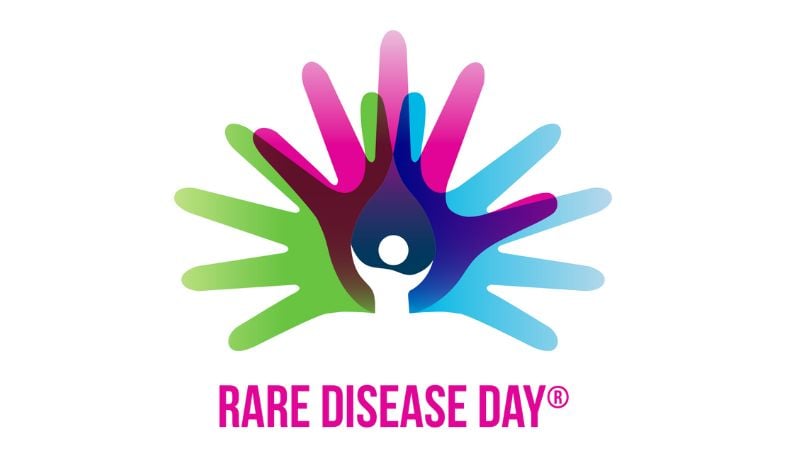
Every breakthrough in medicine starts with a shared question: Will this treatment be safe and effective for everyone who needs it? On Rare Disease Day, this question takes on an even greater urgency for the 300 million people around the world living with a rare disease. These patients often face limited treatment options and await therapies tailored to their unique needs.
And yet, recent actions to cut programs and freeze federal funding for diversity, equity, and inclusion initiatives in clinical research threaten to leave many of these patients behind. These programs aren’t about meeting quotas or promoting buzzwords. They focus on ensuring that clinical trials were equipped to deliver results for a wide range of patients. If these efforts are deprioritized, the risk grows that those trials—and the treatments they generate—won’t meet the standards required for the broadest impact.
This isn’t just an abstract issue for the healthcare industry—it’s a deeply human problem. Behind each trial and treatment effort, there are individuals counting on science to improve, prolong, or even save their lives. Diversity in clinical trials is not about checking a box. It’s about ensuring patients from all backgrounds have a fair shot at cures that actually work for them, rooted in real-world data that captures the breadth of human variation.
Inclusion Matters in Clinical Research
We can’t overstate the scientific value of inclusion in clinical trials. Different people may respond to the same drug in unexpected ways due to variations in genetics, biology, and lifestyle. By including participants from various backgrounds, researchers can gather the comprehensive data they need to assess treatment safety and effectiveness for all patients.
Historically, trials have underrepresented certain groups, including many racial and ethnic populations, women, and individuals living in rural or economically disadvantaged regions. This imbalance limits the ability of new treatments to serve the full population effectively.
Beyond ethical considerations, inclusivity improves research integrity and leads to better healthcare outcomes by addressing questions like:
- Are there differences in how this treatment works across genetic or demographic groups?
- Will the treatment's side effects vary between populations?
- Does the clinical trial data fully reflect the people intended to use the treatment?
These questions—and their answers—aren’t optional. It’s a matter of medical rigor and patient safety.
Rare Diseases, Rare Insights
Inclusivity is especially critical in rare disease research. By definition, rare diseases affect smaller, often geographically dispersed populations. Recruiting patients for trials is already complex, and these logistical hurdles grow even steeper without targeted efforts to engage diverse patient groups. Without tailored initiatives designed to bridge those gaps, what’s left is a research environment that defaults to the easiest-to-reach participants, sidelining a significant portion of rare disease patients.
Fabry disease presents symptoms that vary across genders and ethnic groups, requiring diverse representation in trials. Gaucher disease, more common in people of Ashkenazi Jewish descent, demonstrates the need for inclusion of specific populations. Pompe disease, which affects patients differently based on age and ethnicity, further emphasizes the importance of broad representation—and this is just a small handful of examples. If clinical trials for new treatments fail to properly represent these populations, resulting therapies may not be as effective—or even safe—for the patients who need them most. The stakes couldn’t be higher.
When inclusivity takes a back seat, patients with different genetic profiles, environmental exposures, or cultural needs get left behind. Rare diseases demand a strategic approach to trial design. Without it, researchers miss critical insights, and more importantly, patients lose out on effective solutions tailored to their specific needs.
Specialized Services Make the Difference
Clinical trial participation while living with a rare disease is no small feat. For many patients, navigating these challenges can feel overwhelming—especially when it involves crossing borders, handling financial hurdles, or ensuring their loved ones are equipped to support them.
This is where Scout’s specialized Patient Navigator services come in. We go beyond standard patient support to truly meet the unique needs of rare disease patients. Our services include:
- International Travel, Relocation, and Cultural Integration
Whether it’s arranging travel to a clinical trial site across the globe, helping with temporary relocation, or easing cultural transitions, our team ensures that patients feel supported every step of the way.
- Education and Support for Family Members and Caregivers
A patient's support system plays a vital role in their clinical trial experience. We provide families and caregivers with the knowledge and resources they need to feel confident and capable of offering meaningful support.
At Scout, we recognize that rare disease patients are balancing enough as it is. We’re here to make the clinical trial process as manageable and empowering as possible—because every patient deserves the chance to participate fully, regardless of where they’re from or the challenges they face.
Scout Stands for All Patients
We’re not talking about diversity for its own sake. We’re talking about producing effective interventions that work because they’re developed with every patient in mind. These trials are the foundation of targeted therapies, precision medicine, and long-term health equity. When trials accurately reflect the diversity of the broader population they’re meant to serve, new therapies are better equipped to deliver results.
Scout takes our responsibility seriously. Every patient deserves to be seen, heard, and cared for. That’s why we remain committed to driving greater inclusion in clinical trials even when funding and policy priorities seem to shift away.
We know that solving inequity requires action, not lip service. Every therapeutic breakthrough—especially within rare disease research—relies on complete data and real representation. By taking deliberate steps to ensure inclusivity remains a core principle, we can tackle barriers in rare disease research, maximize the quality of new therapies, and, ultimately, expand access to solutions that change lives.
How You Can Help
Rare Disease Day is a much-needed reminder of what can be accomplished when researchers, healthcare providers, and advocates come together. Strategic, thoughtful patient recruitment in clinical trials benefits patients, strengthens healthcare systems, and helps address long-standing gaps in medical research. But meaningful change requires collective action. Here’s how you can make a difference:
1. Advocate for equitable policies.
Voice your support for policies that eliminate barriers to clinical trial participation. For instance, back initiatives like the Equitable Access to Clinical Trials (EACT) project, which works to reduce out-of-pocket costs for participants, such as transportation, lodging, and lost wages. 2. Support organizations driving change.
Contribute to or collaborate with organizations dedicated to promoting diversity in clinical trials. Groups like the EveryLife Foundation for Rare Diseases, the Rare Disease Diversity Coalition, and the National Organization for Rare Disorders are leading efforts to address inequities in rare disease research. These organizations provide resources to underrepresented populations, advocate for inclusivity, and build awareness in the research community. Your donations, volunteer work, or partnerships can directly fuel these initiatives. 3. Engage in public awareness campaigns.
Use your voice to raise awareness about the importance of inclusivity in medical research, especially on Rare Disease Day. Share educational materials, participate in local events, or use your social media to speak out.
4. Find the right partner.
If you’re involved in clinical research, prioritize trusted organizations that specialize in patient-focused solutions. Partners like Scout ensure patients—no matter their location or background—receive tailored support to participate in trials. From logistical coordination to culturally competent resources, these services are key to engaging diverse populations. 5. Educate and influence your community.
Start conversations with other patients, researchers, and medical professionals about the importance of inclusive research. Organize or attend community forums to discuss the challenges faced by marginalized populations. Informed advocacy can shape public opinion and inspire change at every level.
If you’re looking to help every patient stick with your trial, regardless of individual needs or service level required, reach out to Scout today. We’re committed to making the pursuit of healthier futures more accessible to all.
.png?width=1387&height=800&name=Scout_Logo_RGB%20(1).png)


